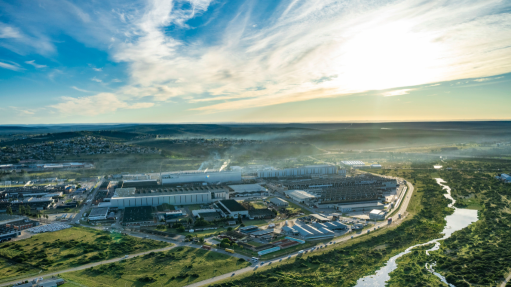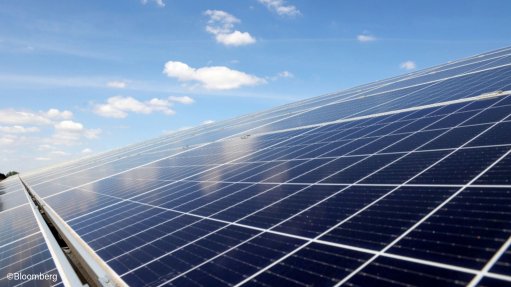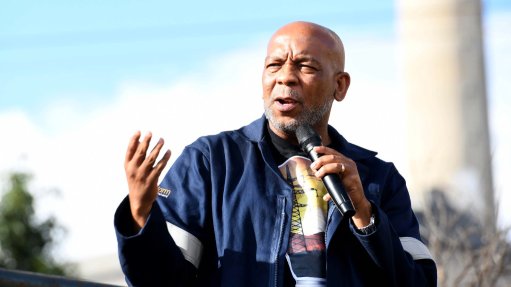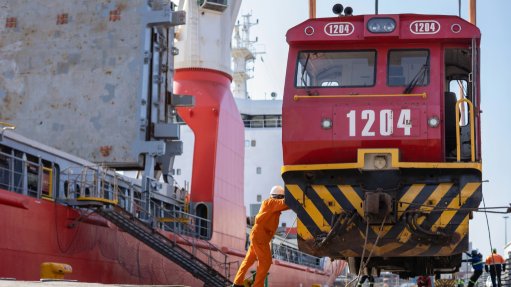Sustainable gas development needed for South Africa


NOBUHLE NKABANE Responsible development of oil and gas resources is crucial to improve energy access in sub-Saharan Africa
Accelerated exploration in the oil and gas sector is critical for South Africa to boost economic development, help meet climate change targets by offering less carbon-intensive fossil fuels, and ensure energy security, says Mineral Resources and Energy deputy Minister Dr Nobuhle Nkabane.
At the third yearly Southern Africa Oil and Gas Conference – held at the Cape Town International Convention Centre on September 13 and 14 – she highlighted the impact of volatile crude oil prices on developing countries.
Volatile oil prices pressure citizens of developing countries by increasing the prices of food and transport, as a consequence of the increase in fuel prices.
She added that high oil prices also resulted in large negative impacts on industrial and economic development, especially for industries heavily reliant on fossil fuel energy.
Therefore, to mitigate the ongoing negative impact of international, elevated prices of oil, Nkabane emphasised the need to support local oil and gas exploration and development, particularly the initiatives government had introduced to support the development of the oil and gas industry.
Meanwhile, she also highlighted the Gas Master Plan, which outlines the critical role of gas as a source of energy in South Africa while providing policy direction for the gas industry.
The Upstream Petroleum Resources Development Bill will regulate the petroleum industry through “discrete petroleum legislation”, as opposed to the 2002 Mineral and Petroleum Resources Development Act (MPRDA).
“We believe [that] the decoupling of the . . . Bill from [the] MPRDA will bring regulatory certainty and, hopefully, shore up investor confidence,” she added.
A significant focus of Nkabane’s keynote address delved into the development of the natural gas industry in South Africa.
As a key component of the Integrated Resource Plan 2019, in which gas accounts for about 3% of the country’s energy supply, she noted the continued need for indigenous gas development and its role in reducing heavy- polluting fossil fuels and ensuring better energy security.
Nkabane emphasised the need to pursue energy sources that align with, and balance, climate change commitments and economic growth requirements.
Indigenous gas can also be used to manufacture liquid fuels, contributing to economic growth; such fuels are a cheaper and cleaner transport fuel, with at least 30% less carbon emissions, compared with diesel.
In this regard, she commended the recent natural gas discovery of 3.1-billion cubic feet of gas, in Mpumalanga, as a “major boost in electricity generation capacity”.
Prioritising Domestic Use
Nkabane noted that while European countries were evaluating Africa as a potential source of gas supply, African countries should be cautious of exporting gas at the expense of local offtake, which could spur local economic development.
She acknowledged that although international demand presented a good opportunity to grow revenue, there was a need to grow demand for gas domestically, which could have a knock-on effect of expanding gas transmission infrastructure development, which would be required to support such local demand.
Gas offers significant value in domestically expanding access to sources of energy while replacing “dirtier alternatives”.
In this regard, she added that, with a significant portion of sub-Saharan Africa lacking access to electricity and clean cooking fuels, the responsible development of oil and gas resources became more crucial.
Meanwhile, Nkabane also highlighted the recent oil discoveries in Namibia as a “welcome impetus for development” in the region and its neighbouring countries, as this development could help substitute the use of diesel in power generation and contribute to regional energy security.
Once fully developed, the oilfields could make Namibia one of the top oil-producing countries in sub-Saharan Africa, she stated.
Nkabane concluded that the sustainable development of oil and gas resources could enhance energy security, spur re-industrialisation, grow manufacturing and boost job creation while reducing geopolitical risks.
Comments
Press Office
Announcements
What's On
Subscribe to improve your user experience...
Option 1 (equivalent of R125 a month):
Receive a weekly copy of Creamer Media's Engineering News & Mining Weekly magazine
(print copy for those in South Africa and e-magazine for those outside of South Africa)
Receive daily email newsletters
Access to full search results
Access archive of magazine back copies
Access to Projects in Progress
Access to ONE Research Report of your choice in PDF format
Option 2 (equivalent of R375 a month):
All benefits from Option 1
PLUS
Access to Creamer Media's Research Channel Africa for ALL Research Reports, in PDF format, on various industrial and mining sectors
including Electricity; Water; Energy Transition; Hydrogen; Roads, Rail and Ports; Coal; Gold; Platinum; Battery Metals; etc.
Already a subscriber?
Forgotten your password?
Receive weekly copy of Creamer Media's Engineering News & Mining Weekly magazine (print copy for those in South Africa and e-magazine for those outside of South Africa)
➕
Recieve daily email newsletters
➕
Access to full search results
➕
Access archive of magazine back copies
➕
Access to Projects in Progress
➕
Access to ONE Research Report of your choice in PDF format
RESEARCH CHANNEL AFRICA
R4500 (equivalent of R375 a month)
SUBSCRIBEAll benefits from Option 1
➕
Access to Creamer Media's Research Channel Africa for ALL Research Reports on various industrial and mining sectors, in PDF format, including on:
Electricity
➕
Water
➕
Energy Transition
➕
Hydrogen
➕
Roads, Rail and Ports
➕
Coal
➕
Gold
➕
Platinum
➕
Battery Metals
➕
etc.
Receive all benefits from Option 1 or Option 2 delivered to numerous people at your company
➕
Multiple User names and Passwords for simultaneous log-ins
➕
Intranet integration access to all in your organisation


















